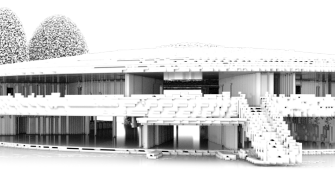
Learn about the exciting, innovative and cutting edge research projects conducted by the High Performance Architecture research cluster.
Microclimate and urban heat mitigation, adaptation
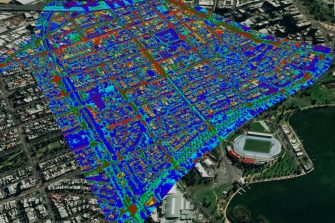
National Heat Vulnerability Observatory - Smart and Cool Places Phase 1
Smart Places Acceleration Program: “Smart places integrate technologies into the built environment to capture information on the asset or local environment. Analysing this data helps communities and governments make better, evidence-based decisions about how to improve the productivity, liveability and resilience of cities, towns and communities.”
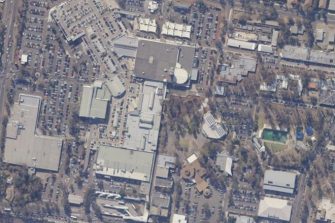
Evidence based interventions for urban cooling
Local climate is interconnected to the rest of the climate system, and therefore heat mitigation must be part of interconnected solutions.
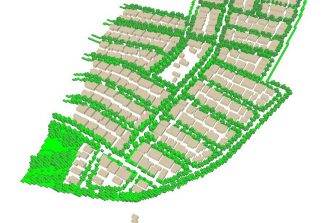
Menangle Park
This project performs analysis of Menangle Park precinct’s existing and future scenarios to evaluate the effectiveness of different heat mitigation strategies.

Preliminary design of a smart climatic road in Phillip St Parramatta
This study aims to pre-design and optimise a smart climatic street (Philip St) in Parramatta, exhibiting high climatic, environmental and energy performance.
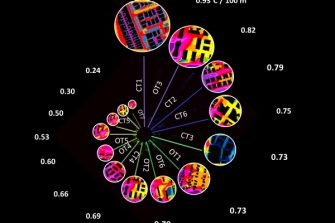
Sydney’s third city
This study analyses the distribution of climatic parameters, ambient temperature, wind speed, surface temperature, outdoor thermal comfort in the 14 different precincts for future climate in 2050.
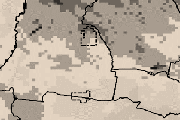
Urban cooling analysis services
This project analyses the present and future climate in the South Creek catchment of Westland Park City, evaluating its impact on energy, peak electricity demand and health.
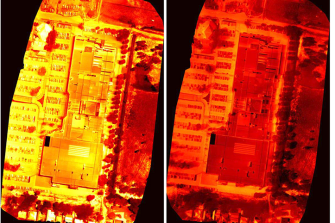
Driving increase utilisation of cool roofs
This project develops evidence-based cool roof design and cost-benefit calculation resources, focused on large-footprint buildings and specifically tuned to the needs of Australian industry.
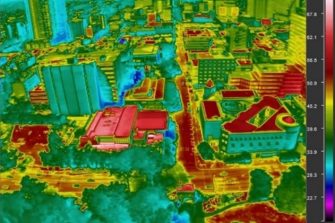
Improving the present and future climate and microclimate in the City of Parramatta
The present study is aiming to analyse the problem of urban overheating in the City of Parramatta Local Government Area (LGA), evaluate its impact on energy, peak electricity demand and health and propose quantified mitigation policies to counterbalance the overheating problem.

UHI-DS - Microclimate and urban heat island mitigation
This project develops a robust microclimate and urban heat island mitigation decision-support tool that bridges the gap between research on urban microclimates and its practical application.
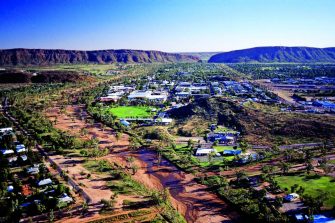
Alice Springs heat mitigation study
This project investigates the characteristics of the local climate in the CBD area of Alice Springs NT and identifies hot spots in the city to develop and evaluate appropriate local climate mitigation scenarios.
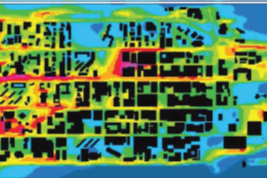
Heat mitigation program: Darwin, Northern Territory (2017)
Urban heat island (UHI) effect in which urban areas exhibit higher temperatures than the surrounding rural or suburban areas is well documented in hundreds of cities around the world including major cities in Australia.

An investigation into the impact of the urban heat
This joint research collaborates with the Jiao Tang University, investigating the impact of the urban heat island on energy consumption and environmental quality of buildings in Sydney and Shanghai.
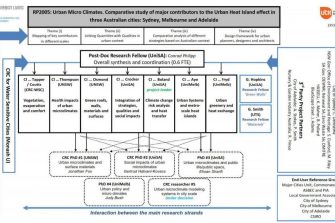
Urban micro climates
This cross-disciplinary, multi-scale project targets cost-effective policy, planning, design and management strategies to mitigate urban heat islands in three Australian cities.

Too hot to play: Quantifying the impacts of urban climate change on playground activity
This project is being undertaken by UNSW and Western Sydney University in partnership with Cancer Institute NSW and Cancer Council NSW.
Net zero carbon buildings and communities
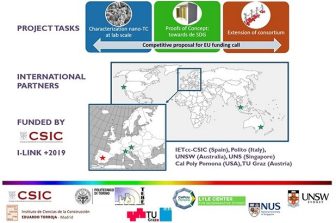
Nanotechnology-based thermochromic materials for adaptive building envelope
This project aims to investigate the viability of using different types of non-dye nanoscale thermochromic coatings as alternatives to their dye-based counterparts for the building application.
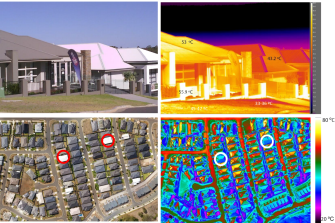
Study on the Cool Roofs Mitigation Potential in Australia
A cool roof has been designed to stay cool in the sun by reflecting most sunlight and retaining the least heat, unlike a conventional solar absorptive roof.

Advanced hybrid ventilation systems for schools
This study examined the proper advanced hybrid ventilation technologies to improve indoor air quality, achieve thermal comfort conditions, and reduce energy consumption and carbon emissions.
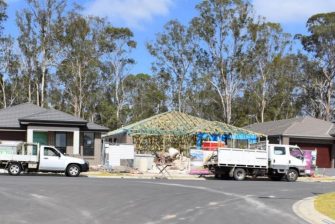
EEDMN BASIX - Mapping the decision-making processes
This project maps the decision-making process of builders, developers and key actors that influence builders to meet or exceed the minimum BASIX requirements and to identify intervention options.
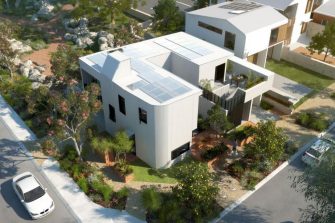
Validating and improving the BASIX Energy Assessment Tool - Phase 2
The BASIX Project (Phase 2) investigates the post-occupancy energy performance of both BASIX and non-BASIX dwellings in NSW to inform government policy.
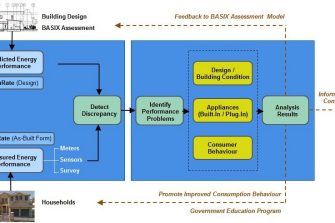
Validating and improving the BASIX Energy Assessment Tool
This project carries out post-occupancy investigations of new residential buildings in NSW. It compares BASIX modelled results to monitoring data in real-life environments and analyse discrepancies.
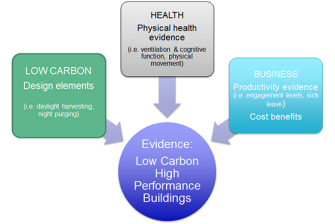
Closing the loop
Closing the loop connects the wealth of evidence for high performance office buildings with front end decision makers through the development of industry decision-making tools and guidelines.

Energy efficiency training and information project: commercial buildings
Existing buildings need to be retrofitted to adapt to global climate change, and their energy efficiency must be improved to avoid vulnerability to volatility in the energy market. Almost 80% of 2050 buildings already exist today, and we must prioritise he efficiency of existing buildings.
Building lifecycle assessment and embodied carbon
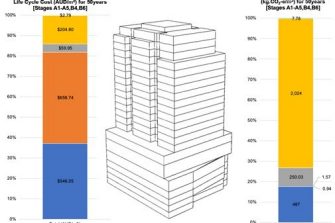
Building lifecycle assessment and embodied carbon emissions
Buildings contribute to environmental degradation and greenhouse gas emissions across their entire lifecycle – from the extraction of the raw materials needed to create them, to their operation, to their eventual decommissioning and demolition. Historically we’ve focussed only on improving building performance, and reducing greenhouse gas emissions, in the ‘operational phase’ of a building’s life. However, there is robust evidence that the emissions caused by materials, construction, maintenance and demolition have a significant and adverse effect on the environment. These emissions are known as ‘embodied carbon’. In a typical building today, embodied carbon can be responsible for more than half of the total greenhouse gas emissions a building will release across its lifecycle.
Sustainable, resilient, regenerative, smart cities
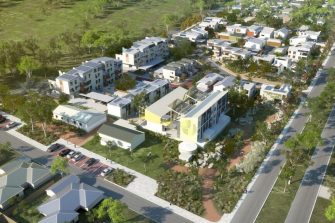
Sustainable, resilient, regenerative and smart cities
Population growth, energy poverty, liveability, and climate change are major challenges cities will face in the future. Rapid population growth in cities has increased pressure on the environment, resource use and infrastructure through natural habitat loss, increased consumption of energy, water and materials, and urban sprawl. Energy poverty is also an important issue in cities as many people with low incomes are unable to access energy services, which can be a seriously detriment to their health and wellbeing. Climate change will also continue to make a significant impact on cities’ services, ecosystems and human health. Effectively responding to this requires new thinking, approaches and technologies to deliver better solutions that can enable the restoration of ecosystems, the transition towards low carbon living, the acceleration of sustainable, resilient and smart cities, and the creation of positive impacts on the environment, society and economy.
Sustainable development, construction, procurement
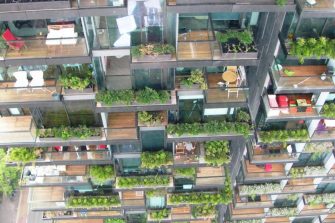
Urban Ecology Renewal Investigation Project
The UERI Project is conducting in-depth desktop research and stakeholder consultation to develop an evidence-based case for embedding urban ecology into decision making.
Others

Development of an immersive 3D virtual environment
This project investigates an immersive 3D virtual platform and determines ways to improve the undergraduate and graduate built environment curriculum using such a platform.
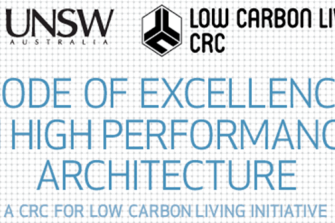
UNSW node of excellence in high performance architecture
This project develops the strength of UNSW in high performance buildings and cities, aiming to achieve research excellence in this area.
Contact us
For more information about the cluster, please contact:
A/ Professor Lan Ding
Convenor, High Performance Architecture Research Cluster, School of Built Environment, UNSW
Email: Lan.Ding@unsw.edu.au; or hpa@unsw.edu.au
